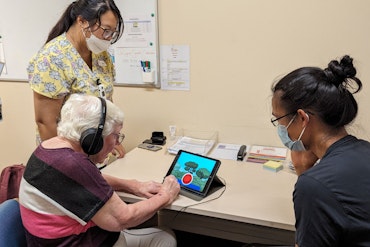How an ageing population permanently changed the Australian economy
The future of Australia’s economy is shaping up to be an incredible prompt for a riddle: ‘something which is older in age, but yet to begin.’
![<p>The Intergenerational Report 2023 published August 24, 2023, is the sixth Report of its kind to be released by the Federal Treasury. [Source: Shutterstock]</p>](https://agedcareguide-assets.imgix.net/news/articles/wp/ageingauspopintergen.jpg?fm=pjpg&format=auto&w=550&q=65)
The Intergenerational Report 2023 published August 24, 2023, is the sixth Report of its kind to be released by the Federal Treasury. [Source: Shutterstock]
Key points:
- The Intergenerational Report 2023 released by Treasury gave Australians insight into the national economy from 2023 until 2062 – 2063
- The care and support sector and its workforce were projected to double over the next 40 years
- The paid workforce participation rate was expected to dip from 66.6 percent to 63.8 percent, due to the population continuing to age
The national economy is expected to feel the effects of Australia’s ageing population by the year 2063, according to a newly published Report by the Federal Treasury.
- The number of Australians aged 65 and over will more than double by 2063
- The number of people aged 85 and over will more than triple
- The number of centenarians is expected to increase six-fold
Although the average life expectancy age is projected to increase in Australia, the rate of increase will grow at a slower rate than in previous years. Life expectancies at birth were 81.3 years for men and 85.2 years for women in the 2022 – 23 period and are expected to be 87.0 years for men and 89.5 years for women by 2062 – 63. Modern medicine and technology will see men live 24.7 years longer after turning 65 and women are tipped to live for a further 26.2 years after making it to 65.
Additionally, the 2020 to 2021 period saw the lowest population growth rate in Australia, breaking a 100-year record, with 0.1 percent growth due to the COVID-19 pandemic.
The Intergeneration Report reflected the increasing demand for aged care and support as a result of an older population, living longer with reduced national paid employment participation.
Council on the Ageing Australia, the peak advocacy group for older Australians, expressed that the Government needed to include people from every generation in planning for the future. Patricia Sparrow, chief executive officer of COTA Australia, said “[…] we have to value and harness the wisdom and experience” that comes from living older, healthier lives.
“There are legitimate discussions to be had around housing, health and other issues but we won’t get a better deal for all Australians by excluding older people from the economy and the community,” Ms Sparrow said.
“This presents us with a policy design challenge to ensure we harness older people to support the growth and improvements of our nation.
“Older Australians are a resource with valuable expertise and expertise that can and should be shared. Without harnessing that we’re robbing every generation.”
The Report predicted the care sector would account for approximately 15 percent of the nation’s gross domestic product, commonly referred to as GDP, by 2062 – ‘63 — an increase of seven percent from the eight percent GDP in 2023.
The Report noted that future increases to productivity, especially in the services sector, would be crucial to strong economic growth over the coming years. Something which Ms Sparrow said is possible through rethinking the role of older people in the workforce.
“Older people can and do continue to contribute to the economy. However, ageism keeps older people who want to work out of our workforce. Addressing ageism will assist older Australians [to] make the meaningful contribution they want to.”
Visit the Federal Treasury Intergenerational Report 2023 report in full online and let us know your thoughts on the economic impact of ageing. Will you be working in 2062 – 2063? If so, the editorial team at Talking Aged Care will continue to be your source of news for the next forty years.























